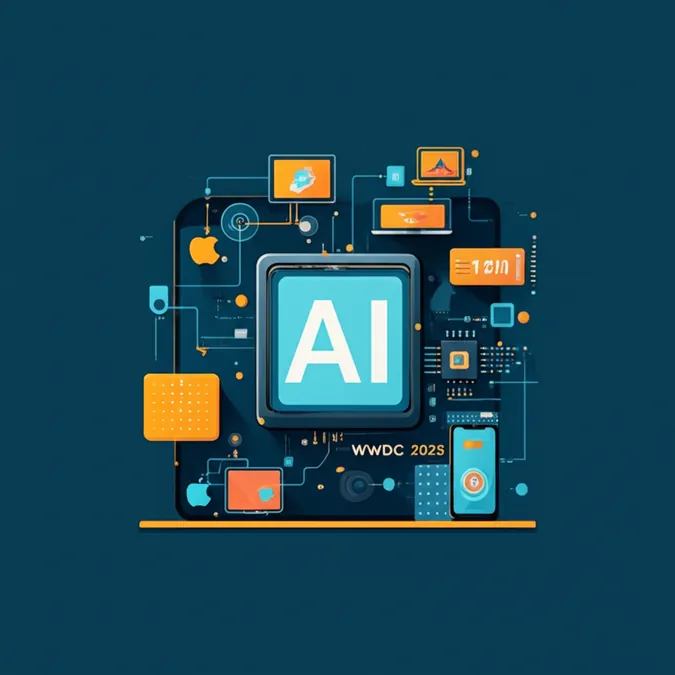Developer Offer
Try ImaginePro API with 50 Free Credits
Build and ship AI-powered visuals with Midjourney, Flux, and more — free credits refresh every month.
AI Geolocation Undermines Photo Privacy
![]() While this view looks innocuous, when AI can easily identify a scene and pinpoint a location, it doesn’t matter if there isn’t any personal info in the photo: a stalker can make use of just a location.
While this view looks innocuous, when AI can easily identify a scene and pinpoint a location, it doesn’t matter if there isn’t any personal info in the photo: a stalker can make use of just a location.
In April, users of ChatGPT discovered the AI's surprisingly precise ability to determine the location of almost any photo. While this might seem harmless initially, a recent story on Vox highlights a disturbing consequence: it's now incredibly easy for someone to stalk individuals using their social media photos.
The New Geolocation Threat from AI
This isn't an entirely new worry, but it's one that deserves renewed attention. When PetaPixel first reported on this AI feature, TechCrunch had already questioned OpenAI about these privacy implications.
OpenAI responded, stating, “OpenAI o3 and o4-mini bring visual reasoning to ChatGPT, making it more helpful in areas like accessibility, research, or identifying locations in emergency response. We’ve worked to train our models to refuse requests for private or sensitive information, added safeguards intended to prohibit the model from identifying private individuals in images, and actively monitor for and take action against abuse of our usage policies on privacy.”
However, this statement doesn't quite address the core problem. As Kelsey Piper from Vox explains, a stalker can get all the necessary information from a photo without it containing any “private or sensitive information.” Piper shared a photo of a beach—just sand, waves, and a cloudy sky—and OpenAI’s o3 model correctly guessed its location.
![]() ChatGPT was able to guess the location of this photo within a 12 minute walk of its actual location. Not perfect, but close enough. | Photo by Jaron Schneider
ChatGPT was able to guess the location of this photo within a 12 minute walk of its actual location. Not perfect, but close enough. | Photo by Jaron Schneider
How AI Pinpoints Your Photos Location
“To my merely human eye, this image doesn’t look like it contains enough information to guess where my family is staying for vacation. It’s a beach! With sand! And waves! How could you possibly narrow it down further than that?” Piper questioned.
She continued, “But surfing hobbyists tell me there’s far more information in this image than I thought. The pattern of the waves, the sky, the slope, and the sand are all information, and in this case, sufficient information to venture a correct guess about where my family went for vacation.”
Previously, unless you were concerned about being tracked by someone exceptionally skilled like geolocation expert rainbolt, sharing innocuous vacation photos on social media felt relatively safe. Piper was likely correct in assuming that most people wouldn't be able to identify her location from a simple ocean-facing photo. But AI can, and the ease with which anyone can access tools like ChatGPT means no photo is necessarily safe anymore.
![]() ChatGPT was bang-on correct when it guessed the location of this photo, which was taken on the slopes of Mount Bandai, near Lake Inawashiro in Fukushima Prefecture, Japan. | Photo by Jaron Schneider
ChatGPT was bang-on correct when it guessed the location of this photo, which was taken on the slopes of Mount Bandai, near Lake Inawashiro in Fukushima Prefecture, Japan. | Photo by Jaron Schneider
AI Companies vs Traditional Tech Giants on Privacy
Some might argue that personal data hasn't been truly personal for a while. Google and Meta have been notoriously hungry for personal data, collecting it constantly. But the difference, as Piper points out, is that Google and Meta primarily use this data to sell advertisements. OpenAI’s product is significantly more, well, open.
“While Google has incentives not to have a major privacy-related incident — users would be angry with them, regulators would investigate them, and they have a lot of business to lose — the AI companies proliferating today like OpenAI or DeepSeek are much less kept in line by public opinion,” Piper writes.
The Escalating Risk of Stalking
There have been multiple reported instances of streamers, influencers, and celebrities experiencing issues with stalkers—and this was before AI tools became so widespread and accessible.
The Search for Solutions and Regulations
Unfortunately, there are no easy solutions to these emerging privacy concerns. Beyond more direct regulation of AI companies and the types of tools they are permitted to integrate into their platforms, holding them legally responsible for how a user maliciously leverages these tools will be difficult.
Piper notes that New York is considering a law that would regulate AI when they perform actions that would be criminal if carried out by humans. However, it remains to be seen if such a law could pass or how it would be enforced. Furthermore, for any meaningful effect, such legislation would need to be implemented in more than just a single state.
Protecting Your Privacy in the Age of AI
For now, if you are concerned about your privacy, the best course of action is to avoid sharing any photos of your current location online.
Image credits: Photos by Jaron Schneider
Compare Plans & Pricing
Find the plan that matches your workload and unlock full access to ImaginePro.
| Plan | Price | Highlights |
|---|---|---|
| Standard | $8 / month |
|
| Premium | $20 / month |
|
Need custom terms? Talk to us to tailor credits, rate limits, or deployment options.
View All Pricing Details

